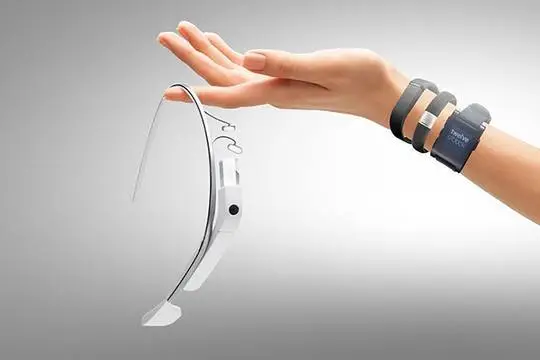Wearables are becoming more prevalent in today’s society. You see people at work with one. Most of them wear these at the gym. Some even when sleeping. There are wearables for every occasion.
So where does that leave us gamers? There is a market for this? Yep! First, let me define this for you. Wearable gaming is played with small computing devices, which are body-mounted in some fashion, and they support game play with functions not possible in established systems like consoles or computers.
It is a market that has not been tapped in the gaming world. There are some companies that have introduced the idea of a gamer style wearable. One example of this is Razer Nabu. This was a sport type band much like a FitBit. It had a small LED screen which showed caller ID, texts, and social media updates. This project was rolled out in a private beta to some members of the public. Since then Razer has stopped production and focused on promoting the Nabu X. While not fully a gaming Wearable, the Apple Watch does gamify everyday labor and fitness. Some companies have already created gaming apps for the Apple Watch.
Other major companies are interested in this technology. According to Sony President and CEO Kazuo Hirai believes that wearables that work with other tech including PlayStation consoles “have a lot of potential to make it a more exciting ecosystem,” Hirai said. “It’s not just the wearable but it’s in fact an extension of a lot of the product experiences that we bring to consumers today.”

There is one wearable that I avoided talking about…Virtual Reality. When getting into the topic of wearables you have to mention VR. Technically speaking, VR headsets are a wearable. It might not look like those little wrist bands or belt clips but you do wear and interact with it.
There are three main VR devices: Sony Morpheus, Samsung Gear VR and of course Oculus Rift. Most of these have been released to the public at the time of writing this. Developer kits are out there and content is being created. Many of these require a computer with high computing power or a console.
There are two problems with wearable gaming products: Price and Need. When creating a product you must have the right price. If the price is too high, no one will buy it. If it’s too low, it can affect the credibility of your product. Sony’s PlayStation 3 had that problem when it was first released back in 2006. The PS3 was priced at $500 and $600. People switched to a Xbox 360 and the PS3 continued to lose money.
Will it work? Will people buy a wearable designed for gaming? This is the question that I poised to a Facebook group I’m in. Most in the group would not buy a wearable on the first day of release. They would want to see if how the this device is supported. How will people react to this new piece of tech? Will it be a success or flop? This is what gamers want to know.
If and when the gaming wearable comes out will you be buying it? Why or why not?







Published: Jun 5, 2015 12:08 pm